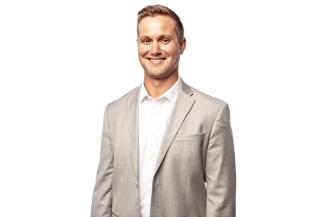Pay Off Debt or Save?
Many of my clients ask me if it’s better to pay off debt, such as student loans or credit card debt, to reduce monthly payments or to save money for retirement or their children’s future college education?
In this blog, I’ll examine some ways to arrive at the best answer for your situation.
Let’s look at a hierarchy of needs as it relates to money:
- Safety / Emergency Fund
- Debt Management
- Risk Management or Insurance
- Saving and Investing
The #1 priority is establishing an emergency fund that will sustain you and your family for 3-6 months. This helps you weather whatever financial storm may come your way like unexpected expenses, a change or loss of income, or other emergencies.
But what if you also have a lot of debt?
First, take stock of the interest rates on your debt. If you have high interest consumer debt (over 8% interest), it may be best to tackle that before anything else.
Recently, I worked with clients to help them to pay off five credit cards over 12 months. They had an extra $2,000 per month over and above their monthly expenses. They also had $1,000 in savings. Although they would need to build a bigger emergency fund, we agreed the highest priority for their situation was to pay off the high interest credit card debt first.
Starting with the credit card balance with the highest interest rate, they paid an additional $2,000 on the card until it was paid off, while still making the minimum payments on their other four credit cards. As they paid-off one card, they moved on to the next credit card balance with the next highest interest until they were all paid off.
Good Debt vs. Bad Debt
Sometimes, the debt is not high interest credit card debt. Perhaps it’s a car loan or school loans that have lower interest rates, under 5 percent. If it’s under 5 percent, you may want to stretch it out as long as you can, so you can reduce your monthly payments and free up cash to build an emergency fund and save for retirement or your children’s college education.
If you delay your retirement savings until all debt is paid off, you lose the benefit of compounded interest on your savings. One strategy is to at least contribute enough to your 401k to take advantage of your employer’s offer to match contributions in your 401K plan. It’s free money you don’t want to turn down.
Stretching out low interest debt may also free up much-needed dollars so you can purchase life and disability insurance to protect your financial welfare and assets. Everything rests on your ability to earn an income; you need to protect your assets from the risk of dying prematurely or becoming too sick or injured to work for a period of time and bring home an income.
Saving and Paying Down Debt
Ultimately, it’s best to find a balance between the amount you spend on debt, life and disability insurance protection, and saving each month. It makes good economic sense to devise a way to split your money between all three goals.
For example, my clients who paid off their credit card debt over 12 months needed to protect their assets with life insurance. They had group long term disability insurance through their jobs, so we agreed to look at purchasing additional individual disability income after they established a healthy emergency fund and retirement accounts.
A Key Question to Ask
A key question to ask yourself when thinking about accelerating your debt pay-off is “do you think you can earn more on an investment vs. what the debt is costing you right now?” If the answer is “no,” then it makes good sense to pay off the debt. If the answer is yes, then you may want to consider a hybrid approach, paying more to toward the debt and a lesser amount to savings.
When I work with my clients, I ask them this question, and we also discuss how they feel about their debt/savings ratio. It can help to explore your options with a trusted financial professional as you choose the approach that works best for you and your situation.
About the Author
Joseph Cramer, CFP, Financial Advisor
Joe, a lifetime Michigan resident, graduated from Trinity School at Greenlawn and the Carlson School of Management at the University of Minnesota with a BSB in finance, risk management, and insurance.
He appreciates working with young professionals and families, especially those in the medical community. His areas of expertise include: holistic fee-based financial planning and coaching; asset protection strategies in the areas of specialty-specific disability insurance and life insurance; debt management; tax deferred strategies for funding education and retirement; and, wealth management.
Please keep in mind that the primary reason to purchase a life insurance product is the death benefit.
Life insurance products contain fees, such as mortality and expense charges (which may increase over time), and may contain restrictions, such as surrender periods.
Investments will fluctuate and when redeemed may be worth more or less than when originally invested.
Healy Financial is independently owned and operated No. 3079339 DOFU 5.13.20


